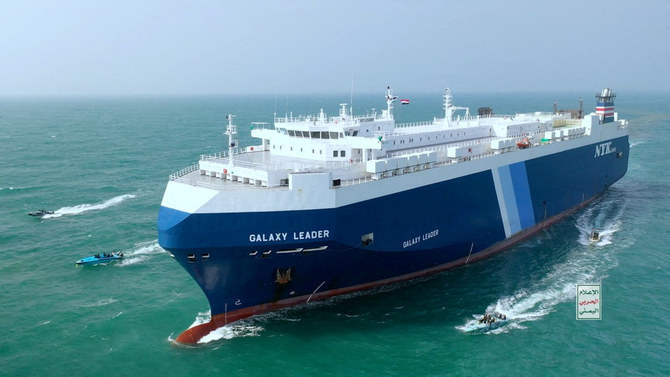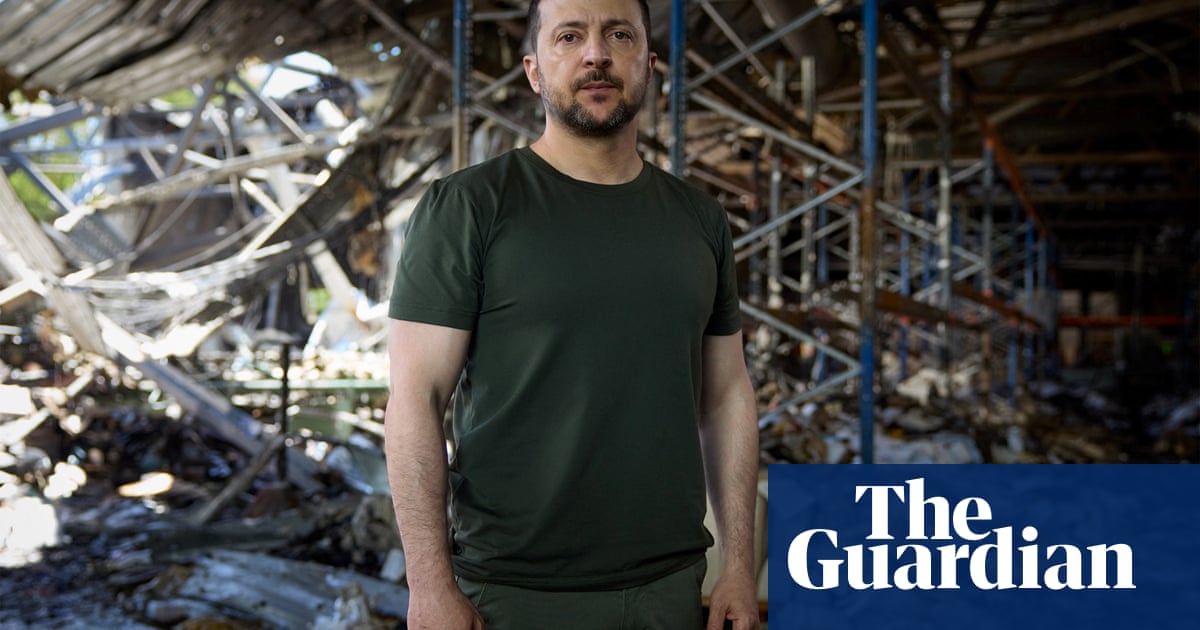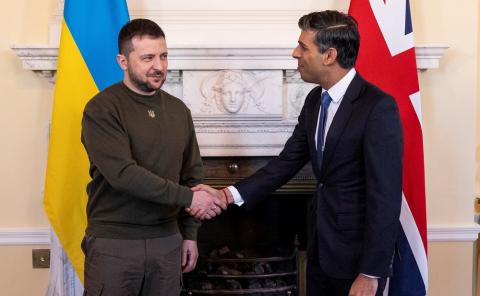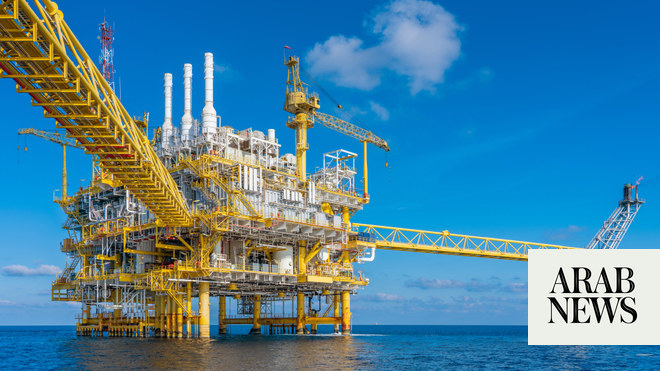
The Ukrainian president, Volodymyr Zelenskiy, has called on the world’s largest independent oil trader to stop shipping Russian oil, accusing it of “brazen profiteering from blood oil”.
On behalf of the president, Zelenskiy’s chief economic adviser, Oleg Ustenko, asked Vitol to state when it would ship its last barrel of Russian oil and how much oil it would ship until that date.
Zelenskiy asked Vitol to close its business dealings with Russia in March “to cut off the cashflow” that he said had financed “the mass murder of innocent people”.
The Geneva-based oil trader said in April that volumes of Russian oil handled “will diminish significantly in the second quarter as current term contractual obligations decline” and that it planned to “retreat from the Russian market”. It expects to have stopped transporting Russian crude by the end of the year.
But in a letter to Vitol’s chief executive, Russell Hardy, seen by the Guardian, Ustenko said: “Those pledges are in tatters.”
Refinitiv shipping data compiled by Global Witness showed Vitol, which employs the former foreign minister Sir Alan Duncan and has offices in London near Buckingham Palace, chartered shipments of more than 11m barrels of oil through ports in Russia in June.
The data showed the energy trading firm has chartered shipments of more than 38m barrels of oil from Russian ports – worth an estimated $3.21bn and averaging more than 9m barrels a month – since the invasion began on 24 February.
Ustenko said: “Vitol has been the largest western trader of seaborne Russian oil since the full-scale invasion on 24 February. This is brazen profiteering from blood oil that is funding the murder of Ukrainian civilians.”
The shipments in June were made from ports including Ust-Luga near the Estonian border and St Petersburg on the Baltic Sea, and Novorossiysk on the Black Sea. The shipments reached European hubs including Amsterdam and Rotterdam, from where the oil may have been moved on to other countries.
In early June a shipment of more than 1m barrels of oil from Novorossiysk was chartered to Jamnagar, the Indian oil refinery. India has ramped up imports of Russian oil since the start of the war.
Sam Leon, the head of data investigations at Global Witness, said: “Since the invasion, Vitol has been one of the main western enablers of Putin’s deadly trade in fossil fuels. Nothing but the toughest embargo on Russian oil will stop them from profiting at the Ukrainian people’s expense.’’
As well as exporting Russian oil, Vitol exports Kazakh crude and oil products through Russian ports.
Vitol said in April it would not enter into any new Russian crude and products transactions.
The company said in a statement: “Vitol has reduced shipped volumes of Russian crude and products by circa 80% since January 2022 and it will continue to reduce these volumes through to year-end.
“Any Russian crude or products shipped by Vitol are in full compliance with all applicable laws, regulations and sanctions, including those of the EU, Switzerland, UK and US. Russian transactions subject to the EU reporting obligations are declared to the relevant authorities, with which Vitol has an open and transparent relationship.”
Vitol has a stake in Vostok Oil, a vast oil and gas oil project in the Arctic in Russia. Vitol said it had agreed to sell its shares and was “in the process of completing the legal formalities” for the sale.
Russia is the world’s third biggest oil producer after the US and Saudi Arabia. The US has banned Russian oil imports and the UK intends to phase them out by the end of this year.
Oil firms have been under pressure to cut ties with Russia since the start of the war. BP has promised to sell off its stake in Russian state-backed Rosneft, while Shell is also selling its Russian assets. Last week Vladimir Putin signed a decree that could force Shell to abandon its stake in a huge Russian gas plant.












